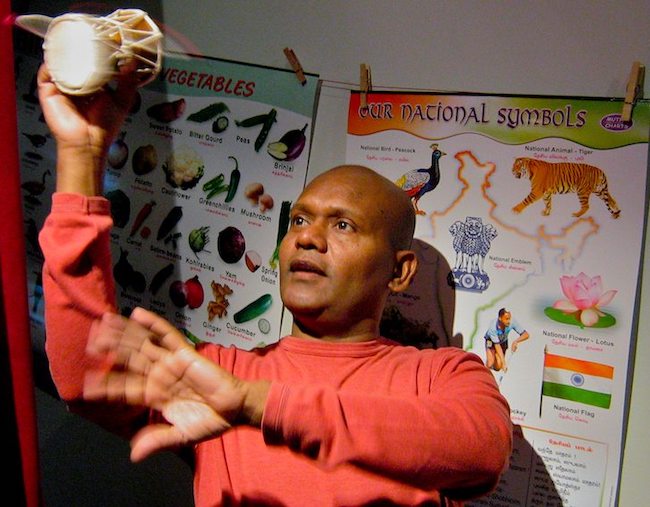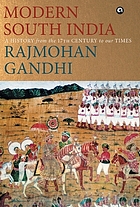Gudu Gudu makes wonderful listening, time and again. A rendition by Sreevidhya Chandramouli along with her husband and son as part of their ongoing KaraikudiVoyage.
This song encapsulates the healing power of music waiting to be brought into practice on a more regular base for being rooted in tradition at its very best.
Tips: 1. Search inside this file by first clicking on the (…) Ellipses icon; 2. click eBook title to access [ ] Toggle fullscreen; 3. to Read this book aloud, use the headphone icon.
Translation on Archive.org
- NEW FORTUNE TELLER (PUDIYA KONANGI)*
by Mahakavi Bharati
Gudu gudu gudu gudu gudu gudu gudu gudu
Happy days ahead for the people!
Caste feelings are no more.
No more are there any conflicts.
Shakti ! Maha Kali! Speak up.
Predict good times for the people of Vedapura !
Poverty is gone.
Prosperity is in.
Knowledge is ushered in.
Sins have vanished in the thin air.
If the educated try to deceive
the simple men, they will be ruined in no time.
Commerce and industry are being learnt.
Workers flourish.
Shastras and skills are being learnt.
Fear is gone. Justice prevails.
The hour of awakening is come.
The magic of incantations is working all around us.
Source: Full text of “Poems Subramania Bharati” (National Council of Educational Research and Training, 1982), pp. 147-151 in the text version provided by Archive.org; and from p. 160 in the embedded version displayed above.
* The fortune teller is traditionally depicted as shaking a small hourglass-shaped drum called kudukuduppai in Tamil, and as damaru across India. Two beads attached to it by strings produce the characteristic rattling “kudu kudu” sound evoked in this poem as harbinger of a bright future for all.

playing the kudukuduppai (damaru) during a family workshop
at Museum Rietberg (Zurich 2008)
More about the poet Subramanya Bhaaratiyaar (1882-1921)
Bharati was determined to abolish the caste system in India. He selected an untouchable boy, to prove his principle of “equality” to the society.
Some clarifications on caste-related issues by reputed scholars >>
Learn more from the Annotated Biography (with a National Historical Background) published by his granddaughter Dr. S. Vijaya Bharati >>
When Bharati’s vision as a poet went to work upon the sober knowledge of national and world affairs derived from his journalistic labors, the result was compelling political poetry of a kind that is rarely found in twentieth-century literature – with, fittingly enough, Russian literature being a notable exception.
Mira T. Sundara Rajan in “Subramania Bharati — The Eternal Revolutionary” (The Hindu, 12 September 2017)
https://www.thehindu.com/news/national/subramania-bharati-the-eternal-revolutionary/article19670435.ece
(The author is a great-granddaughter of Mahakavi Bharati. She holds a DPhil from Oxford University, where her research involved the study of Russian law and history. A wealth of information about the poet may be found on his granddaughter’s blog, https://subramaniabharati.com)
Subramanya Bharathiyar is a renowned poet from Southern India. … His poetry is known for its appeal to the liberty and strength of the people. … His national integration songs earned him the title “DEsiya Kavi” (National Poet). He composed Tamil keertanais on love, devotion, fearlessness, mysticism. | Learn more on karnatik.com >>
For background information on places like Karaikudi, Ettayapuram (the poet’s birthplace) and Chennai (where he died), explore the musical map created for this course. | Tips for using the interactive Carnaticstudent-map >>
Technical support for browser viewing
When a web browser fails to display a Google SafeSearch window, try the following:
click the current post heading (works when viewing a list of summaries)
directly view the websites include (e.g. Dictionaries)
More tips >>
Related post
“Sampradaya is like a broad river and the bani is a tributary”: Umayalpuram Sivaraman on his 75 years of performance >>
Carnatic music as experienced today: its social and political context in a nutshell

As the nineteenth century closes and in January 1901 a distant Empress dies, the onlooker recognizes an advance across South India in education, a growing print culture, and an emerging middle class of small landholders, doctors, lawyers, college teachers, writers, government employees and merchants.
In the realm of ideas, the onlooker discerns a few currents. One is of nationalism. Another is for reform in traditional customs and exclusions. A third is of linguistic pride. And a fourth pursues equality among castes.
Rajmohan Gandhi in Modern South India: A History from the 17th Century to Our Times , p. 236
This is a Dravidian story, and also more than that. t is a story involving four centuries, the seventeenth, eighteenth, nineteenth and twentieth, yet other periods intrude upon it… [cover notes]
Information about the persons, items or topics
Research & Custom search engines
The Oxford Illustrated Companion to South Indian Classical Music
Learn & practice more
A brief introduction to Carnatic music (with music examples and interactive map)
Bhava and Rasa explained by V. Premalatha
Free “flow” exercises on this website
Introduction (values in the light of modernity)
Video | Keeping tala with hand gestures: Adi (8 beats) & Misra chapu (7 beats)
Why Carnatic Music Matters More Than Ever
Worldcat.org book and journal search (including Open Access)